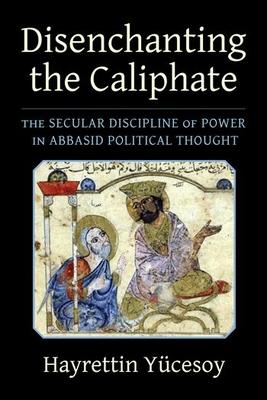Date:
Location:
**THIS EVENT HAS BEEN POSTPONED UNTIL FALL 2024**
The CMES Director's Series presents a book talk with
Hayrettin Yücesoy
Associate Professor of Arabic and Islamic Studies, Department of Jewish, Islamic, and Middle Eastern Studies (JIMES); Director of Graduate Studies; Resident Faculty Fellow at the Center for the Humanities (Spring 2024), Washington University, St Louis
Discussants: Cemil Aydin, Professor of History, University of North Carolina at Chapel Hill
Huseyin Yilmaz, Associate Professor, History and History of Art, George Mason University
Cengiz Sisman, Professor of History, University of Houston
Hayrettin Yücesoy is a historian with a specialization in the premodern Middle East. His scholarly interests revolve around the intricate realm of political thought and practice, covering themes such as political messianism, monarchy, republican practices, visions of social order throughout premodern literature, and the historiography of these subjects.
In his written works and publications, Yücesoy delves into the convergence of discourse and political practice, unraveling the polyphonic and dialogic nature of texts. His research endeavors aim to uncover unconventional and dissenting voices, which act as a counterpoint to both contemporary and premodern "master narratives." Yücesoy is interested in discourse and social position and in the language's capacity not only to articulate but also to shape life-worlds. Throughout his career, Yücesoy has contributed to scholarship through publications in English, Arabic, and Turkish. His recent research revolves around the discourses of "good governance" as a point of entry for tracing the lineage of non-theological and non-ulema-centric political discourses in Middle Eastern history.
His latest monograph, Disenchanting the Caliphate: The Secular Discipline of Power in Abbasid Political Thought from Columbia University Press is a significant contribution to the history of political thought in the Middle East. Closely reading key eighth-century texts, Yücesoy argues that the ulema’s discourse of religious governance and the political thought of lay intellectuals diverged during this foundational period, with enduring consequences. He traces how notions of good governance and reflections on prudent statecraft arose among cosmopolitan literati who envisioned governing as an art and illuminates the emergence and impact of a vibrant secular political thought tradition that spread across regions and over centuries. Disenchanting the Caliphate provides an insightful and thought-provoking reconsideration of key aspects of political discourse in the intellectual history of Muslim societies.
In his previous monograph, Messianic Beliefs and Imperial Politics in Medieval Islam: The Abbasid Caliphate in the Early Ninth Century, Yücesoy embarks on an analytical journey to understand the interplay between ideology and practice, using the political actions of the early ninth century Abbasid caliph as a specific case study.
In an earlier monograph, The Development of Sunni Political Thought: The Formative Period (published in Arabic), Yücesoy traces the emergence of Sunni political discourse against the backdrop of socio-political and theological developments between the 8th and 10th centuries. Going through a wealth of textual sources, he illuminates how the Sunnis developed a political awareness that treaded a fine line between monarchical rule and “electoral consent” in the context of their dialogic engagement with the caliphate, sectarian formations, and lay bureaucrat-scholars.
Yücesoy's related scholarly work has also been featured in prominent journals and published volumes. The list of publications includes titles such as "Language of Empire: Politics of Arabic and Persian in the Abbasid World," "Translation as Self-Consciousness: The Abbasid Translation Movement, Ancient Sciences, and Antediluvian Wisdom (ca. 750-850)," "Ancient Imperial Heritage and Islamic Universal Historiography: Al-Dinawari’s Secular Perspective," "Political Anarchism, Dissent, and Marginal Groups in the Early Ninth Century: The Ṣufis of the Mu’tazila Revisited," and "Justification of Political Authority in Medieval Sunni Thought."
Yücesoy's current academic responsibilities encompass teaching a range of courses, including premodern political thought and practice, the history of slavery, the life of the prophet Muhammad, the history of Islamic civilization, the history of food, and premodern Islamic history. His teaching methodology, much like his research, is in harmony with a critical decolonial standpoint, intricately weaving a bottom-up, world-historical storyline to confront enduring culturalist interpretations. At the moment, he is in the process of preparing a book that will incorporate an English translation of Ibn al-Muqaffa’s work "The Epistle on the Caliph’s Companions," accompanied by a contextual biography of the author.
Contact: Liz Flanagan
